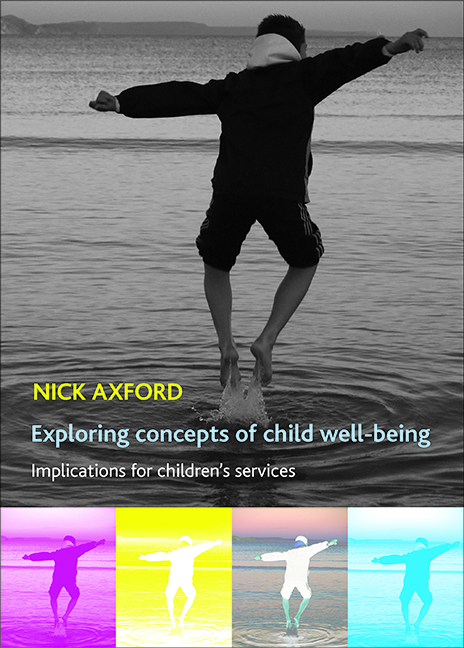Summary
The two-way relationships between the five conditions
Each of the following 10 tables takes a pair of conditions and shows how they are related using data from the N=234 sample. For example, Table D1 shows that 44 of the children who were in need had their rights violated (20% of the sample) compared with the other 43 whose rights were intact (19%). Of those who were not in need, 51 nevertheless had violated rights (23% of the sample).
The 32 five-way combinations of the conditions
Table D11 shows the frequency of each of the 32 five-way combinations of the concepts for the children in the N=234 sample. For example, just three children (1.4%) displayed all of the conditions: in need, violated rights, poverty, poor QoL and social exclusion. This was the joint 16th most common combination.
Two-way relationships between the conditions not covered in Chapter Nine
Chapter Nine included qualitative case studies of children affected by the six most common five-way combinations. Together they covered 27 out of the 40 possible two-way relationships shown in Table D12.
This section provides examples from the N=234 sample of the remaining 13 two-way relationships. Each relationship is given the number of its box from Table D12 (so that ‘Relationship 2’ refers to two-way relationship 2, that is, ‘in need but rights intact’).
In need but rights intact (relationship 2)
A four-year-old girl living with her mother. Need: She was suffering from allergies and a urinary problem. Rights: Her home had been burgled recently, thereby infringing her rights to privacy, but this did not count as a serious breach of her right to protection.
Rights intact but a poor QoL (relationship 23)
A 16-year-old boy living with his father. Rights: This child was subject to inconsistent care and poor boundary-setting (provision). Sometimes he had to undertake caring responsibilities for his disabled father. However, these were not deemed to be serious infringements of his rights. Moreover, social services and the education psychology service were working hard to achieve stability for the child and to provide him with diversionary activities such as holiday schemes. They were trying to take the pressure off him by supporting his father.
- Type
- Chapter
- Information
- Exploring Concepts of Child Well-beingImplications for Children's Services, pp. 219 - 226Publisher: Bristol University PressPrint publication year: 2008



